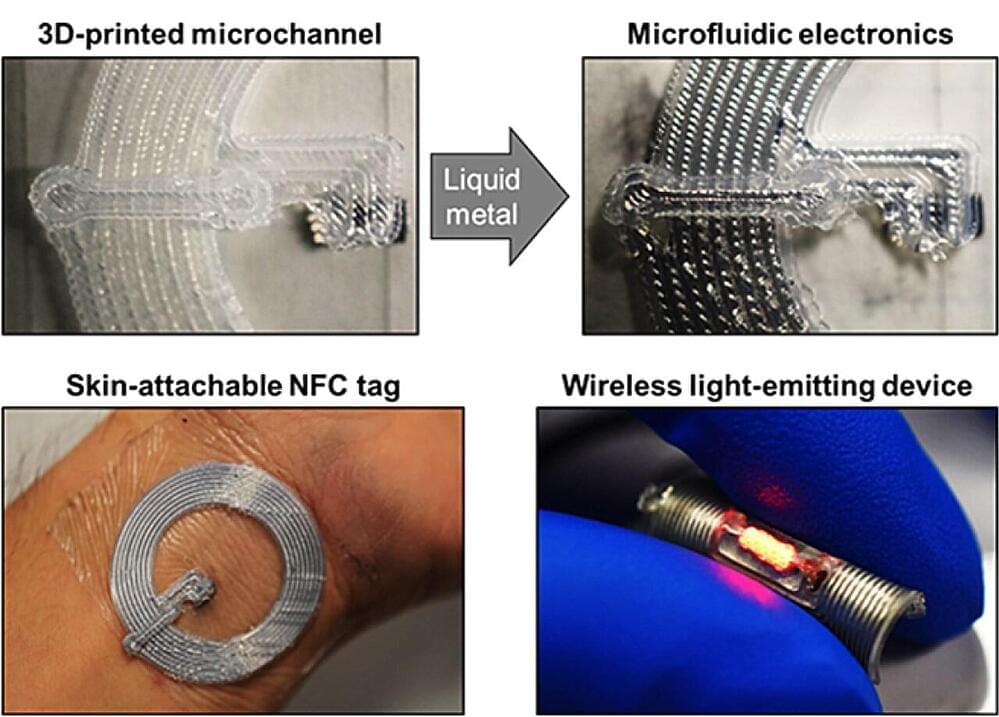The transition from traditional 2D to 3D microfluidic structures is a significant advancement in microfluidics, offering benefits in scientific and industrial applications. These 3D systems improve throughput through parallel operation, and soft elastomeric networks, when filled with conductive materials like liquid metal, allowing for the integration of microfluidics and electronics.
